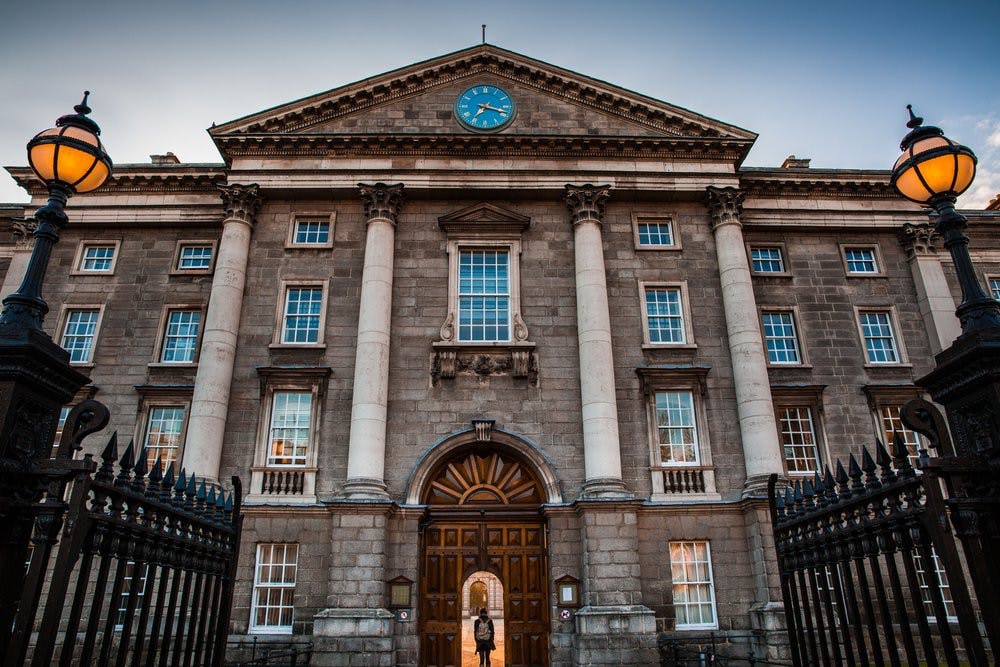BY: LAUREN LUMPKIN

The college admissions process can be summed up in one word: grueling.
Many of us can remember praying for the perfect SAT score, poring over the details of personal statements, and trying to pass that one weekend spent babysitting cousins off as real job experience. And that's if you've got support from your high school or parents who can advise you through the application process—which can sometimes take more than six months. There are thousands of students across the country that don't even know where to begin when it comes to applying to college.
This inequality becomes even more disparate when legacy admissions, also called legacy preferences, are considered. This happens when an applicant is given preference for being related to an alum. For example, a Harvard admissions officer may decide to admit an applicant because that applicant's parents graduated from the university.
Legacy preference gives white, wealthy students yet another advantage over other deserving candidates, who are most often students of color, from low-income homes or both. There is no way to predict what kind of student an individual will be based solely on where their parents went to school. Legacy preferences only protect white mediocrity and enforce impossibly high standards for students of color.
Legacy admissions are most frequently practiced at Ivy League institutions and other prestigious universities. Harvard's incoming class of 2021 is nearly one-third legacy, reported The Harvard Crimson this year. Stanford saw similar demographics in its freshman class. The California school's admissions rate is just 5.1 percent, but an applicant's chances for admission triple if their parents or grandparents attended the university.
While education disparities have improved in recent years, white people still finish college at higher rates than black people; the graduation rates for both groups are 62 and 38 percent, respectively, Inside Higher Ed reported. Black students make up just 9 percent of freshmen at all eight Ivy League schools, but 15 percent of college-aged Americans. This gap has barely shifted since 1980, according to a report by The New York Times.
Elite universities in recent years have been criticized for an extreme lack of diversity. However, legacy admissions, that disproportionately impact white students, persist. At just 38 universities—including five Ivies—there are more students from the top 1 percent of richest families in the country than from the bottom 60 percent, reported The Washington Post. Not even 1 percent of kids from the poorest one-fifth of families attend an elite school.
There are a number reasons why these stats exist: inequalities in K-12 education, access to private tutors, whether or not a student had to work a job, or the number of college counselors staffed at a high school. But legacy status pushes students—regardless of how deserving they are of a Harvard or Yale education—to the top of admissions lists. As seen in the demographics of who attends the country's most elite institutions, these students are largely white and almost always wealthy. So, the black, brown and low-income kids potentially lose their spots to students who can say their father is a "Harvard man."
While it's clear that legacy status has an obvious impact on an applicant's chances of attending an elite university, it's unclear how exactly their applications are assessed in comparison with others. At least at Stanford, where each application is only guaranteed one reading, legacy applicants are guaranteed "two sets of eyes," according to "What It Takes," an article by Stanford alum and ESPN reporter Ivan Maisel.
The admissions office is not the only place legacy students are given unfair advantages over other students. American University's Alumni Association offers a scholarship that is only offered to "students who have a mother, father, or grandparent with a degree from AU," according to the organization's website. This scholarship creates the illusion that legacy students are somehow more deserving of an education than non-legacy applicants.
Legacy admissions become even more sinister when studied in the context of first-generation college students. Cynthia Turcios is a junior at American University and the first in her family to attend college. She said she thinks legacy admissions are unfair, but is used to the cards being stacked against her. "Obviously I don't have any legacies anywhere, but I ended up here," she said. "I feel like [legacy preferences are] mostly for people who have money."
Money is a big part of the legacy admissions game. It is possible, even likely, that admissions officers feel more compelled to support legacy applicants because of how much their parents support the university. Harvard alumni donated more than $650 million during the 2015 fiscal year, according to a report by U.S. News & World Report. A survey published by the Voluntary Support of Education found that Princeton graduates donated more than $400 million that same year.
It is not to say that students do not deserve to follow in their parents' footsteps, however, they should not receive preferential treatment for doing so. Legacy admissions, which overwhelmingly benefit the children of white college graduates, only reinforce the idea that black and brown students must be twice as good, twice as smart and twice as able as their white counterparts.


